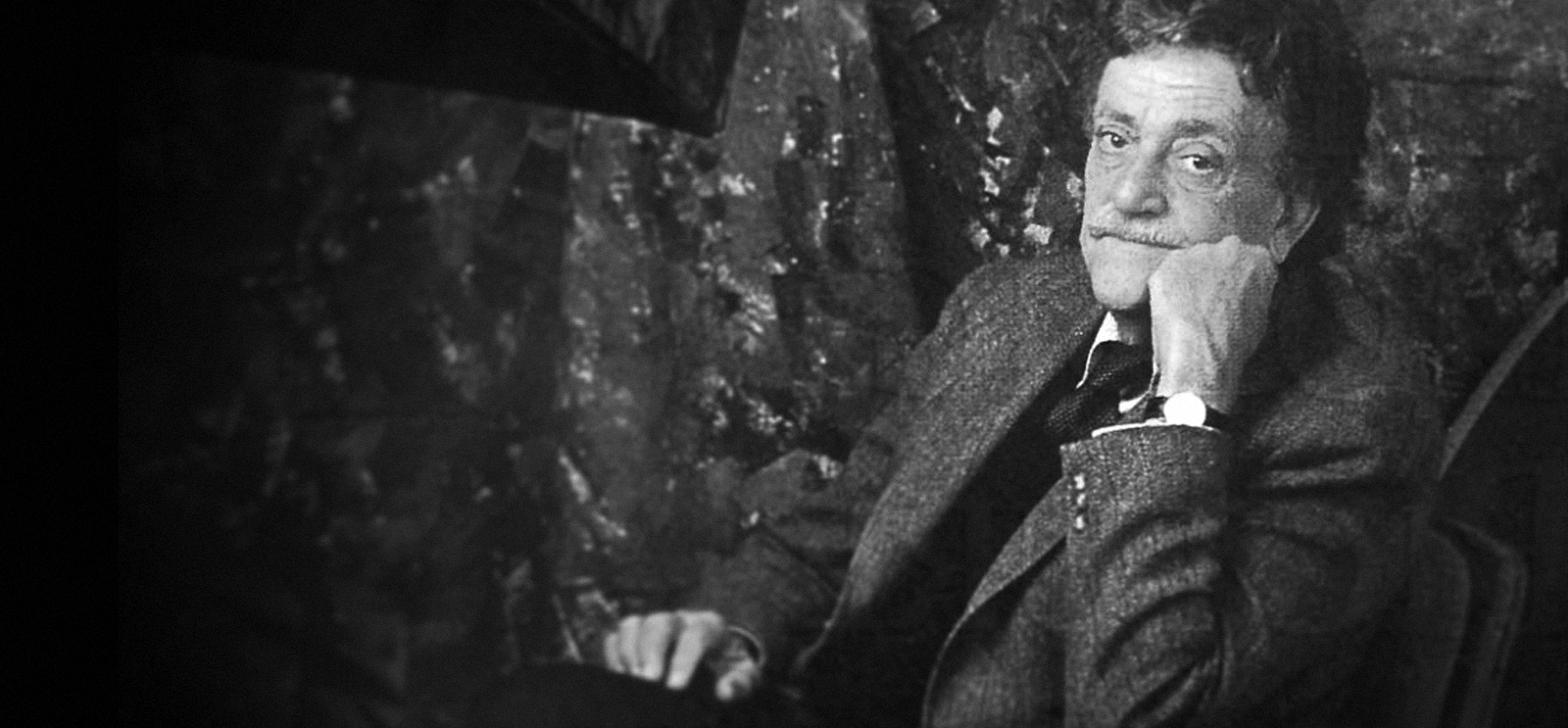
Kurt Vonnegut, AM’71, strikes a writerly pose. (Photography by Dan Dry)
From our print archive: In a whirlwind campus visit in February 1994, novelist Kurt Vonnegut, AM’71, wowed a new generation of fans.
Every seat in Max Palevsky Cinema was taken, and, to keep the hall from filling to sardine-can levels, a young man armed with a walkie-talkie blocked he entrance. Nonetheless, halfway through the famous visitor’s lecture, a dozen locked-out fans discovered a side door opening onto the stage. They quietly crawled in, squatting on the carpet before the speaker’s feet and lining the stage behind him. Fire codes be damned: this was Kurt Vonnegut, after all, and no one wanted to miss out.
That night, Vonnegut played both entertainer and preacher, pulling in listeners with jokes and stories while dishing out harsh criticisms of technology and culture. For the crowd, the February brush with celebrity was a welcome thaw in the midst of winter quarter. After his talk, a knot of students cornered Vonnegut backstage, then found themselves unable to do anything but gawk.
“My mom and dad read all his books in the Sixties,” gushed one admirer. Many second-generation fans said they had read at least Cat’s Cradle or Slaughterhouse-Five.
Vonnegut, a Marjorie Kovler Visiting Fellow, held other roles during his 24-hour stay on campus: teacher, alumnus, dinner guest, and compatriot—the last in a chat with members of University Theater, which in 1992 produced his 1970 play, Happy Birthday, Wanda June. Older observers may have wondered what the most popular novelist among undergrads of the 1960s would find in common with their children. Indeed, one student came hoping to swap electronic-mail addresses with the great writer, then listened to Vonnegut launch into a diatribe on how computers transmute human beings—“dancing” animals—into chair-bound, forgetful pawns.
But in several sessions with students—his packed schedule had the precise timing of a society wedding—Vonnegut’s satiric wit still seemed, as their parents would say, relevant. Conversations touched on themes familiar to his readers: the fate of art in the age of TV, the loneliness of life without extended families, and a formula for revolution (“one apparent genius, two straight arrows who say, ‘Pay attention to this man,’ and one person to talk to the general public”).
Students could thank the Kovler Visiting Fellows program—which promotes contact between University students and prominent figures in the arts, science, and public affairs—for Vonnegut’s visit. His ties to Chicago, though, date to 1946, when he was a graduate student in anthropology. He left in 1947, master’s thesis rejected, but years later submitted Cat’s Cradle to fulfill the thesis requirement. While his professors judged it acceptable, a rule regarding previously published work held up his A.M. degree until 1971.
Asked about his Hyde Park days, Vonnegut declined to wax romantic. “I was a returning veteran with a wife and two kids,” he said. “I didn’t have any student life.” Yet, despite a few cracks about a degree that came too late to advance a career already in full bloom, he acknowledged a debt to his UChicago teachers. Above all, the writer credited the late Robert Redfield, PhB’20, JD’21, PhD’28, a professor of anthropology and then dean of Social Sciences, for his long-standing interest in the isolated, traditional cultures that Redfield called “folk societies.”
“My politics are based on people forming small groups. It’s madness to try to belong to something as big as the United States,” Vonnegut said. Later, he thanked Redfield for that belief: “One plausible romantic theory about humanity is perhaps the best prize you can take from a university.”
